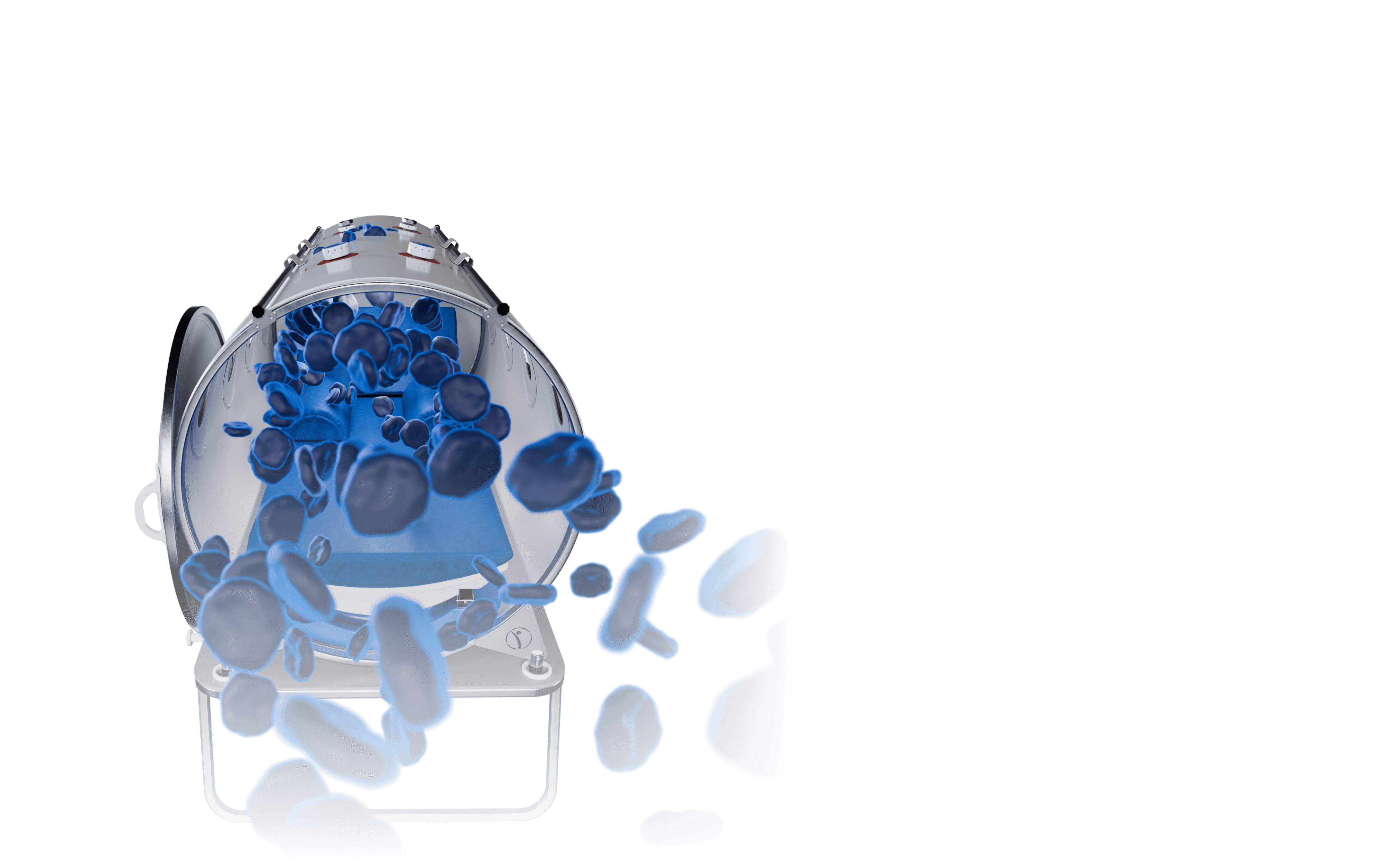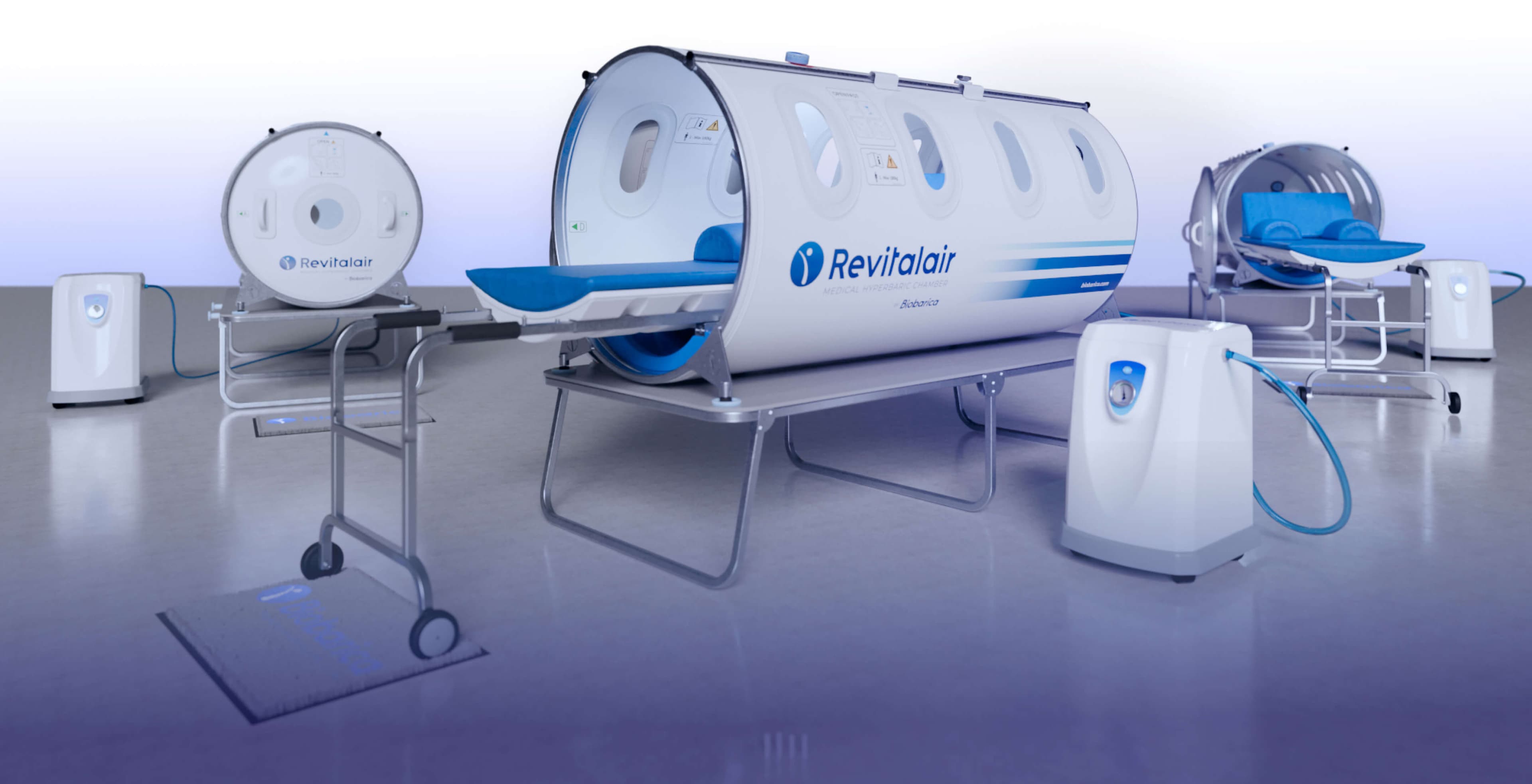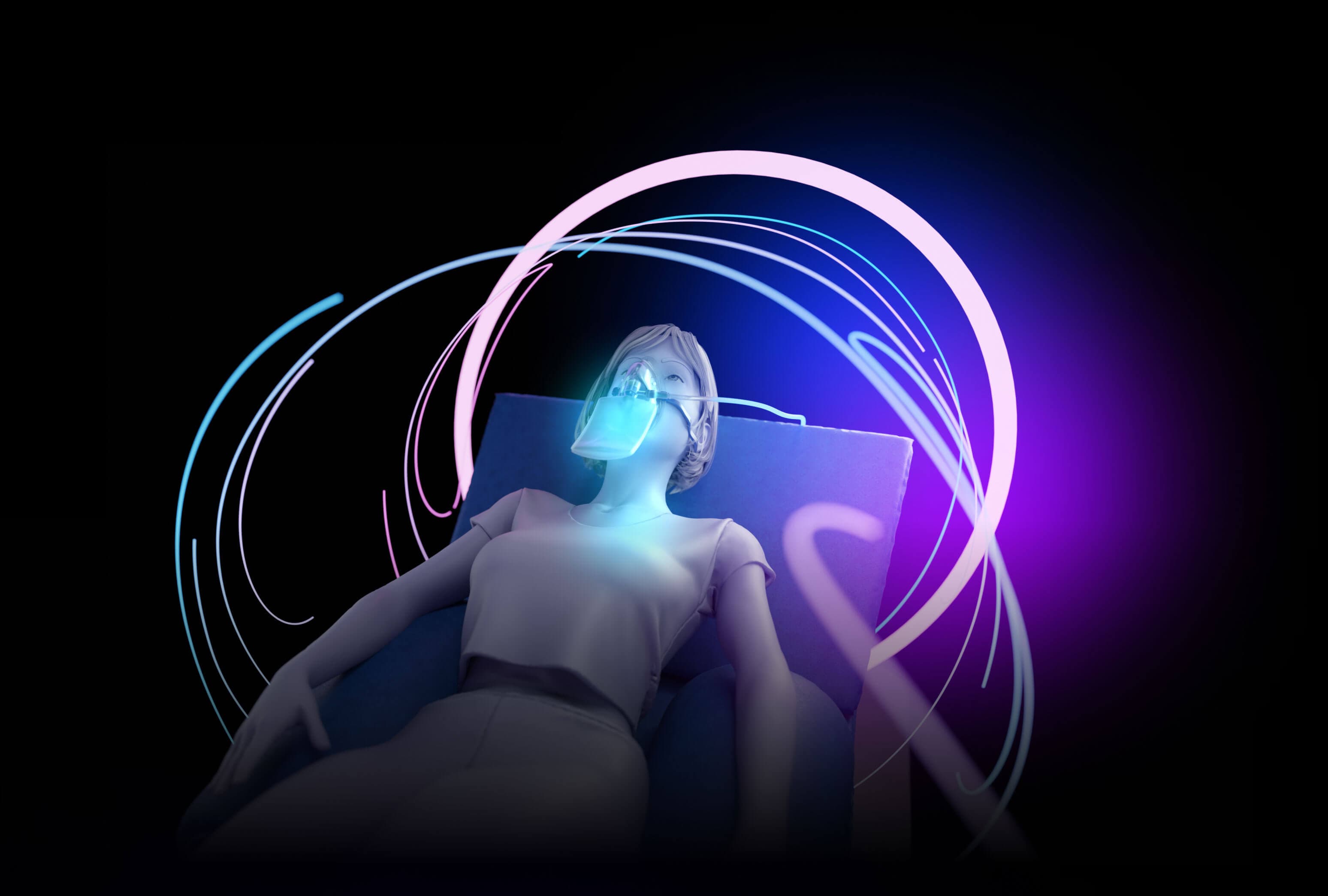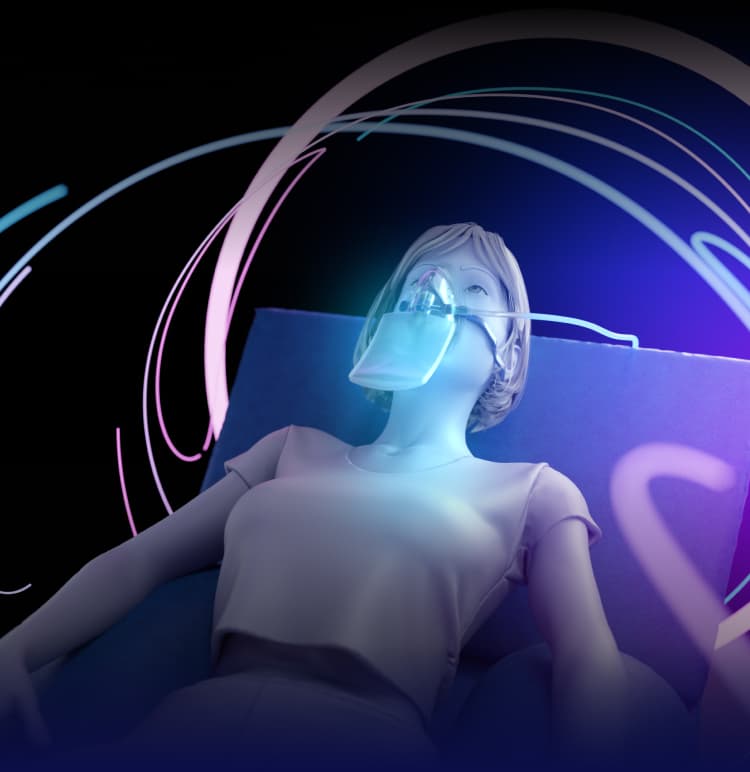

Hyperoxia
The treatment in the Hyperbaric Chamber generates a strong hyperoxia, unleashing a series of beneficial effects for the organism.
Mechanisms of action of HBOT
Physiological Effects
The Hyperbaric Chamber produces strong hyperoxia that generates different benefits for the organism.
Oxygen promotes nervous system plasticity.
Hyperoxia stimulates and promotes the formation of small blood vessels, thus improving perfusion.
Hyperoxia induces proline hydroxylation and fibroblast proliferation. Thus, it promotes collagen synthesis, which is essential for wound healing and tissue repair.
Hyperoxia generates reactive oxygen species that increase the activity of antibiotics. It is also active against bacterial biofilm.
Hyperoxia acts on regulators and mediators of the inflammatory response and decreases oxidative stress. This results in an anti-inflammatory effect and decreases cell damage.
It improves perfusion thanks to the formation of new vessels and cerebral oxygenation, decreases edema and inflammation of the central nervous system.
Hyperoxia stimulates the differentiation of bone-forming cells, promotes osteogenesis and bone repair.
It improves tissue microcirculation, decreases the production of reactive oxygen species and increases their degradation by stimulating the expression of antioxidant enzymes.
It has an anlgesic effect in nociceptive and neurophatic pain, through tissue repair, recovery of functionality and reduction of inflammation.
History of Hyperbaric Medicine
1662 - Great Britain
Development of the first Hyperbaric Chamber sketch. It called "Domicillium".
1775 - 1789
Discovery of oxygen properties.
1860 - Canada
Construction of the first Hyperbaric Chamber.
1878
Treatment of diver decompressive disease.
1920 - 1930 - USA
Treatment for hypoxic problems (circulatory, cardiac). Construction of the "Spherical Cunningham-Timken", a 5-floor Hyperbaric Chamber.
1959 - Amsterdam
First hyperbaric operating room for cardio-pulmonary surgeries and skin grafts.
1960 - USA and the rest of the world
First successful treatment of gas gangrene. The indications for injuries, anaerobic infections and carbon monoxide poisoning are extended.
1974-1990 - Russia
The emergency of the hyperbaric medicine centers in Moscow.
Nowadays - USA and Israel
Pressures lower than 2 ATA are described as optimal for neurological disorders and the indications are significantly expanded.
Hyperbaric Treatment System
Bringing the future of Hyperbaric Medicine

Hyperbaric Medicine
Biobarica +
View cookie policy.

